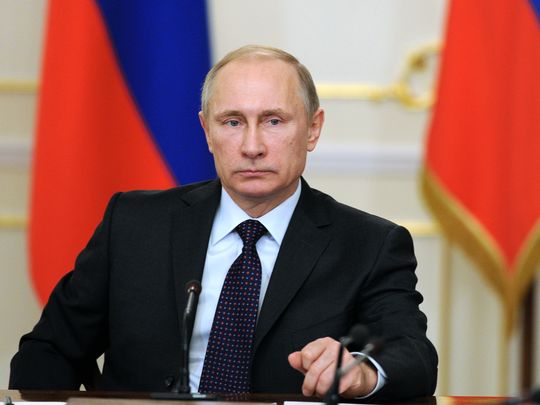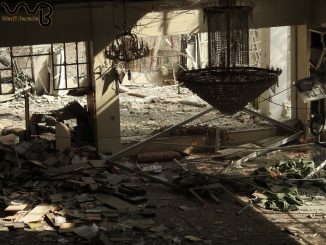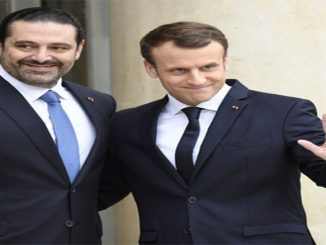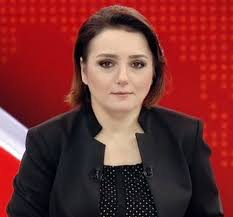
Russian President Vladimir Putin on Wednesday accused France of using a United Nations resolution on Syria to put pressure on Russia and raise tension, while suggesting Paris was making a service the United States.
Russia vetoed a French-drafted U.N. Security Council resolution on Saturday that would have demanded an end to air strikes and military flights over Syria’s city of Aleppo
Western governments said the veto showed Moscow had no interest in halting the violence.
Also, French president Francois Hollande criticized Russia’s actions in Syria and said he will meet him in Paris, during Putin’s planned trip, only to speak about the Syrian crisis.
Putin after that canceled his trip to Paris, and launched a stinging attack on France’s handling of the resolution.
“It’s not our partners who should be offended by our veto, it’s us who should be offended,” Putin said, when asked about France during a question and answer session at a business forum in Moscow.
He said French Foreign Minister Jean-Marc Ayrault had raised the issue of the resolution when he visited Moscow last week. Ayrault was told the document put too much of the blame for the Aleppo violence on Syrian government forces, but that Moscow would not use its veto if France made some amendments.
“We expected joint, constructive work with France and with other permanent members of the Security Council. But what happened?,” Putin said.
“The French foreign minister flew from Moscow to Washington, the next day he came out with (U.S. Secretary of State John) Kerry, accused Russia of all the deadly sins, no one spoke to us or discussed anything with us, and tossed the resolution into the Security Council obviously expecting our veto.
“What for? Knowing our position, and not discussing it with us, they didn’t chuck in the resolution so it would pass. But to get the veto. What for? To exacerbate the situation and to whip up anti-Russian hysteria in media under their control, and to deceive their own citizens,” Putin said.
“I don’t know if that corresponds to the interests of European countries or not. But to just service like this the foreign policy interests, or maybe even the domestic political interests, of their allies, in this case the United States?
“I don’t know. Is that really the role of such serious countries which aspire to conduct independent policies and be called major powers. I don’t know,” Putin told the forum.
Negotiations in good faith with Moscow
Speaking to reporters in Rome, Ayrault rejected Putin’s accusations, saying he had negotiated in good faith with Moscow and had accepted some Russian proposals, but that he had failed to convince them of the need to halt bombing of Aleppo.
“We couldn’t accept a resolution that did not address such an essential issue,” he said, adding that there would be an enquiry into allegations of war crimes in the Syrian city.
“The massacre in Aleppo is continuing. I am appealing for an end to this massacre and to save the people of Aleppo. It is never too late to make peace,” he said.
Describing Russian air strikes in Syria as “war crimes”, Hollande said it was still necessary to talk with Moscow, but only if discussions were “firm, frank,” otherwise it would be a “charade.”
“With Russia, France has a major disagreement on Syria and the Russian veto of the French resolution at the U.N. Security Council has prevented the cessation of bombings and enablement of a truce,” Hollande said at the Council of Europe.
“I’m ready to meet President Putin if we can advance peace, end the bombings and announce a truce,” he said.
Assad regime, backed by Russia, said on September 22 it was starting a new wide offensive to recapture the rebel-held parts of Aleppo after a week-long ceasefire was declared officially over on 19 September.
There are about 275,000 people trapped by the siege of eastern Aleppo, where civilians are suffering through daily bombing, including by bunker-buster and incendiary weapons, and through starvation, as limited supplies run out and aid convoys are blocked from the city.



